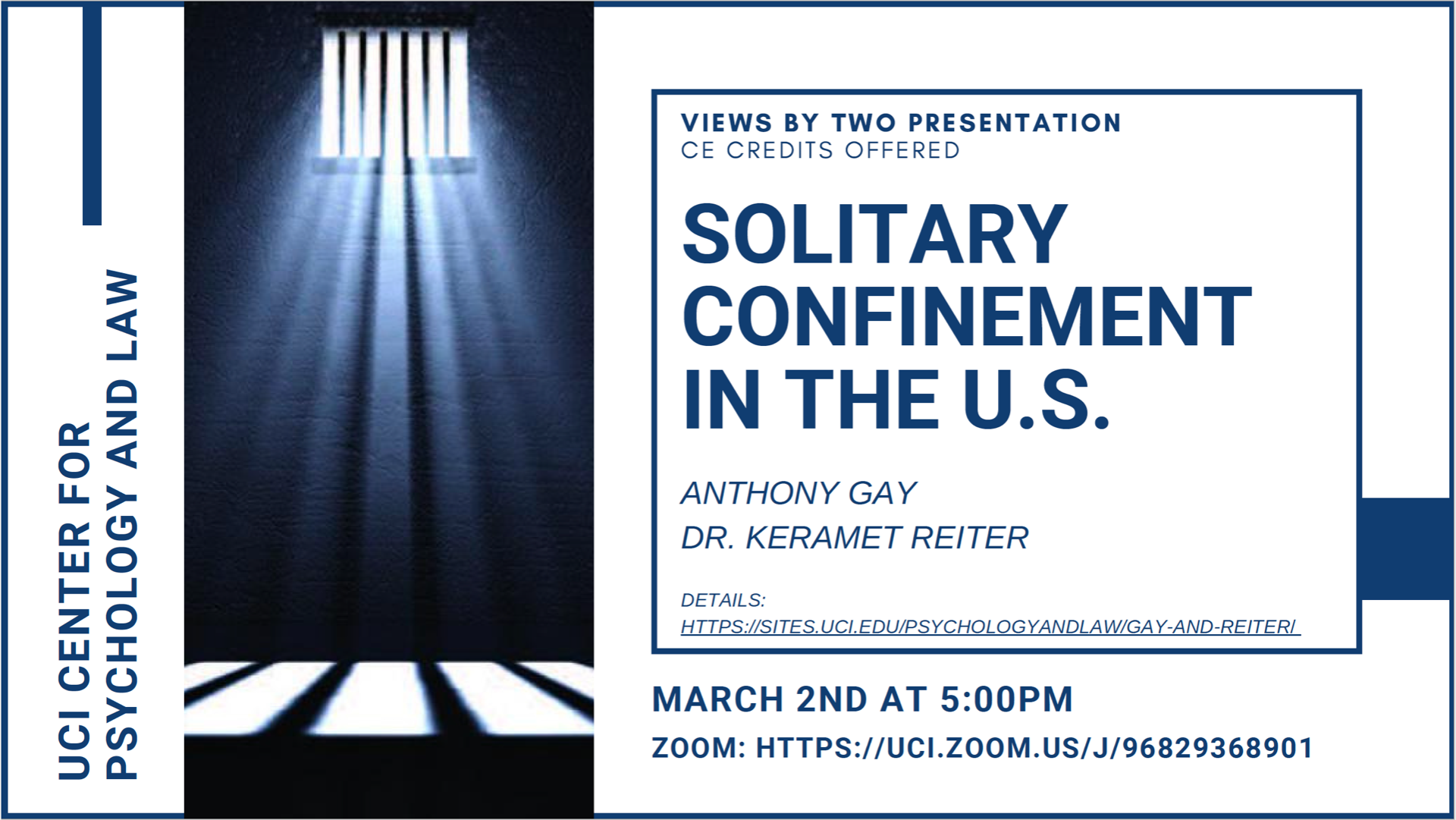
Please click here to RSVP!
Presentation
Solitary confinement – the widespread American prison practice of keeping prisoners locked in cells the size of a wheelchair-accessible bathroom stall for months and years at a time – has come under increasing state, federal, and international scrutiny in recent years. A national #StopSolitary movement supports efforts to abolish the practice in jails, juvenile facilities, and state and federal prisons. But many correctional officials defend the practice as necessary for safety and security and dispute claims that the practice is harmful. A recent rash of research, though, has documented the physical, neurological, and mental health impacts of extended terms of solitary confinement. Keramet Reiter will discuss this recent research, including findings from a study she led, interviewing and evaluating a random sample of more than 100 people in solitary confinement in Washington state prisons. Anthony Gay will discuss his own experiences in solitary confinement in Illinois prisons, as well as his more recent work to advocate for abolition of the practice.
About the Presenters
Keramet Reiter studies prisons, prisoners’ rights, and the impact of prison and punishment policy on individuals, communities, and legal systems. She is the author of two books: 23/7: Pelican Bay Prison and the Rise of Long-Term Solitary Confinement (Yale University Press, 2016)and Mass Incarceration (Oxford University Press, 2017), and the co-editor (with Alexa Koenig) of the anthology Extreme Punishment: Comparative Studies in Detention, Incarceration and Solitary Confinement (Palgrave Press, 2015) and the principal investigator on projects funded by the National Science Foundation and the Langeloth Foundation. She consults, speaks widely, and writes for general audiences about extreme punishment policies and practices in the United States. In addition to her research, she has a long-standing commitment to prison education; she has taught in prisons in Massachusetts, New York, and California and is the founding director of UC’s first prison-based bachelor’s degree program, LIFTED.
Anthony Gay went to prison in 1994 for a probation violation (he was on probation for allegedly stealing a dollar and a hat from a guy in a street fight). Anthony landed in solitary within two years of beginning his sentence. His mental health began to deteriorate. Instead of throwing Anthony a rope of hope and pulling Anthony out of the ditch of solitary, he was punished with an additional 101 years added to his sentence. When most people would have surrendered to the inadequate treatment and torture, Anthony refused to relent. Even though he lost 80 times in court, he continued to fight for his freedom. Anthony’s no-surrender attitude finally paid off. With the help of two powerful attorneys (Jennifer Soble and Scott Main), Anthony prevailed and was released in August 2018 after 22 years in solitary. Now his mission, against all odds, is to dismantle solitary confinement in America and to educate people about the tragic mental effects of withholding human interaction. His advocacy has prompted the creation of a proposed Illinois state law, The Anthony Gay Isolated Confinement Restriction Act.

Connect with us